.
Meet the Hispanic and Latinx Scientists Pioneering Environmental Research
While the global scientific community is incredibly diverse, and many Hispanic and Latinx leaders have significantly impacted science, representation in many mainstream U.S. publications still needs to be improved. That is why we highlight the contributions of Hispanic and Latinx Earthwatch scientists, not just in honor of Hispanic and Latinx Heritage Month but year-round.
September 15 to October 15 is National Hispanic Heritage Month, a time in which we spotlight the cultures and contributions of Hispanic and Latinx people. We asked Earthwatch scientists to share more about their careers, perspectives, and advice for aspiring Hispanic and Latinx STEM scientists to commemorate the occasion. Learn about Earthwatch scientists leading vital research on wildlife, climate change, and ocean health worldwide.
.
.
Meet our Hispanic and Latinx Scientists!
.
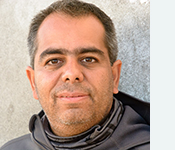 Dr. Lenin Oviedo Correa (He/Him)
Dr. Lenin Oviedo Correa (He/Him)
Research Associate & Associate Head of the Tropical Marine Mammals Ecology Lab for the Centro de Investigación de Cetáceos Costa Rica (CEIC)
Lead Scientist on “Conserving Marine Mammals in Costa Rica” and “Sea of Giants: Marine Life of the Baja Peninsula”
Focus area: Ocean Health
Dr. Lenin Oviedo Correa is a Venezuelan researcher captivated by the diversity of marine animals in Latin America. During his education, he fell in love with Golfo Dulce, the focus on his current work with Earthwatch, which he describes as a “wonderful tropical fjord.” Last year, his nine years of collecting wildlife monitoring data alongside hundreds of Earthwatch volunteers as the lead scientist on our Conserving Marine Mammals in Costa Rica expedition culminated in the designation of Golfo Dulce as an Important Marine Mammals Area, bringing increased protection for whales, dolphins, and other wildlife.
Q: How has your background influenced your career as a scientist?
LOC: "I am a Venezuelan scientist working in Latin America with the support of Earthwatch, a US-based institution. Working in my home region in science applied to conservation has been incredibly challenging due to the complexity of the socio-economic issues of the region and the limited funding available for science, but my formative years were also faced with these challenges, making me an adaptable, creative, and resourceful survivor. The difficulties make the endeavor even more enticing, making science and conservation a great experience that usually becomes a passion. Add to this that our regions include six megadiverse countries so rich in biodiversity that every challenge is worth it. My advice to other Latin Americans doing STEM is to read a lot and fall in love with your process, from data collection to publishing your results, then appreciate and be grateful for your formative years.”
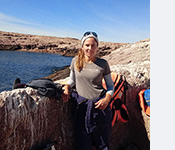 Dr. Gabriela Blanco (She/Her)
Dr. Gabriela Blanco (She/Her)
Adjunct Researcher at Centro Para el Estudio de Sistemas Marinos (CESIMAR–CONICET)
Lead Scientist on “Trailing Penguins in Argentina”
Focus area: Wildlife & Ecosystems
Dr. Blanco, an expert on penguins, petrels, and other seabirds, has spent much of her career exploring migration and nesting behavior. As lead scientist on Trailing Penguins in Argentina, her work has focused mainly on studying the spatial ecology of Magellanic penguins, studying these creatures’ behavior at sea and their interactions with their overall environment. In response to dwindling Magellanic penguin populations, Dr. Blanco and her teams work to inform efforts to preserve this incredible species.
Her work with Earthwatch has also led to publications analyzing the at-sea distribution, diving, and foraging performance of Magellanic penguins, measuring the impact of plastic pollution on pelagic seabirds, and more.
Q: How does your Hispanic/Latinx heritage intersect with and enrich your work and research?
GB: "Biological sciences are transversal to any cultural heritage, and this is the way it should be seen. As scientists, we publish our work in international scientific journals; once the article is published, I don't believe the specific culture of the scientists matters.
That said, as Latinxs, we face some difficulties in carrying out our research. The first is the language barrier; most scientists from Latino countries are bilingual. The next one is the economic situation of our countries, as most of the time, there are few or non-budget assigned for research. Moreover, some scientific journals charge large amounts of money that we cannot afford to pay, which makes our work less visible than the work of scientists from developed countries.”
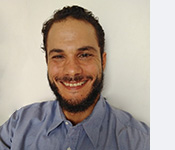 Dr. Manoel Muanis (He/Him)
Dr. Manoel Muanis (He/Him)
Researcher at the Universidade Federal do Rio de Janeiro
Lead scientist on ”Wildlife and Reforestation in Brazil”
Focus area: Wildlife and Ecosystems
Dr. Muanis’s engagement with Earthwatch dates back to 2003, when he began working with volunteers to study wildlife and ecosystems. Today, as lead scientist on Wildlife and Reforestation in Brazil, he works in the Reserva Ecológica de Guapiaçu, collecting important data on how large-scale reforestation efforts are impacting regional wildlife. The data that Dr. Muanis and his team collect is used directly in regional management plans, and his teams also contribute directly to reforestation efforts by planting and helping to grow seedlings in the reserve.
For a look at the volunteer experience on this expedition, read “A Day in the Life of a Reforestation Volunteer in Brazil.” In the past, Dr. Muanis has also worked with Earthwatch to publish on topics like otter behavior in the Pantanal wetlands.
Q: How does your heritage intersect with and enrich your work and research?
MM: “As a Brazilian who loves my country, culture, and nature, since I was a kid, I have tried to understand how I can benefit from greater biodiversity after decades of studies and expeditions in and outside my country. I’m still looking for the answer, but of course, as time passes, the models in my mind become more and more complex. The Brazilian people, much like their biodiversity, are heterogeneous and creative and have a special way of solving problems with the resources that are present, which, most of the time, are limited and scarce. We call this “jeitinho brasileiro”— Brazilian way. Here we have a funny, popular saying that NASA has to come and study Brazilians and the ingenious solutions that people come up with to overcome adversity. But in the end, the solutions work well and often solve problems that would cost thousands of dollars.”
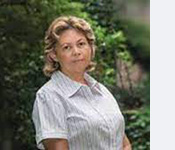 Elsa Valiente Riveros, MS (She/Her)
Elsa Valiente Riveros, MS (She/Her)
Former Director of the Restauración Ecológica y Desarrollo A.C. (REDES)
Co-lead Scientist on ”Conserving Wetlands and Traditional Agriculture in Mexico (Retired)”
Focus area: Wildlife and Ecosystems
Elsa Valiente Riveros, M.S., is the director of Restauración Ecológica y Desarrollo A.C. (REDES). REDES is a local non-profit that aims to increase the health of wetland ecosystems in Xochimilco, Mexico, by monitoring water quality and local biodiversity, providing research results to policymakers, and educating local farmers on sustainable agriculture and business strategies. Elsa has been working in Xochimilco to restore the wetlands since 2002. Through her partnership with Earthwatch, Elsa has worked with volunteers and farmers to create and implement technical and management solutions to agricultural challenges and ensure ecosystem health.
Q: How does your heritage intersect with and enrich your work and research?
EVR: “I think a fundamental fact that impacts our research and work with farmers is that Mexico, as part of Mesoamérica, is the site of origin for many crops such as corn, zucchini, beans, amaranto, cacao, vanilla, quelites, etc. They represent our agrobiodiversity, which is the result of hundreds of years of our people taking care of the native crops according to the several food and cultural characteristics of each region of our country. With this in mind, any scientific research needs to be enriched with the social part, integrating the feelings and thoughts of the local people to ensure long-term positive results.”
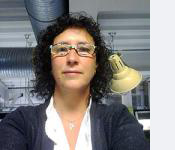 Dr. Claudia Ponce de León (She/Her)
Dr. Claudia Ponce de León (She/Her)
Professor, Faculty of Sciences, Universidad Nacional Autonoma de Mexico
Lead scientist on ”Conserving Wetlands and Traditional Agriculture in Mexico” (Retired)
Focus area: Wildlife and Ecosystems
Dr. Ponce de Leon specializes in water chemistry and the effects caused by environmental stressors on aquatic organisms, communities, and ecosystems. In her partnership with Earthwatch, she works alongside Elsa Valiente Riveros, MS, and the rest of her project’s expert team to help farmers protect ecologically critical wetlands. She has also studied many wetlands-related subjects, like the impacts of agricultural and industrial chemicals on wetlands and creating evaluative systems to measure wetland health.
“With the support of enthusiastic citizens, we can cover a lot more ground and sample comprehensively. With their keen observations of the surroundings, we can pinpoint sources of environmental disruption (e.g., contamination).”
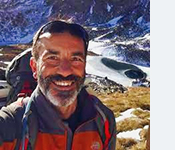 Dr. Bernat Claramunt-López (He/Him)
Dr. Bernat Claramunt-López (He/Him)
Researcher and Ecology Lecturer at CREAF (Centre for Ecological Research and Forestry Applications)
Lead scientist on ”Wildlife in the Changing Andorran Pyrenees”
Focus area: Wildlife and Ecosystems
Dr. Claramunt-López is an ecologist who loves mountains. His research centers on discovering how mountain communities, especially the ones at high elevations, adapt to changing environmental conditions. Using cameras, his team studies how climate change and human encroachment impact wildlife in the mountains of Andorra, sharing their high-quality data with the Andorran government to inform wildlife management decisions.
Dr. Claramunt-López’s recent scholarly work with Earthwatch includes research on the impact of climate change on wildlife in the Andorran mountains, investigations into the social and legal implications of camera traps for wildlife monitoring, and more.
“For a scientist interested in the future of natural communities, The Pyrenees are—maybe unfortunately—a perfect place to work. Most global change models predict notable changes in Mediterranean regions, and the Pyrenees are at the core of one of them. Some evidence of these changes, such as decreased snow cover, is already easy to see. Also, the orography [topography] of the Pyrenees, as with all mountains, makes some gradients occur very close together. So, changes in the composition of natural communities can appear more clearly than in flat regions. And needless to say, it is a pleasure working in mountains with extraordinary landscapes.”
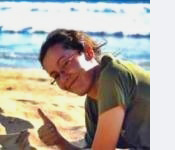 Dr. Pilar "Bibi" Santidrián Tomillo (She/Her)
Dr. Pilar "Bibi" Santidrián Tomillo (She/Her)
Science Director at The Leatherback Trust
Research Director on ”Costa Rican Sea Turtles”
Focus area: Ocean Health
Dr. Bibi Santidrián Tomillo has worked on the Costa Rican Sea Turtles expedition for over ten years. Her current research with Earthwatch focuses on the effect of climatic events on the hatching success of leatherback turtles and other reptiles. In that time, she and her team protected hundreds of nests, studied the behaviors of hundreds of individual turtles, and ensured that tens of thousands of hatchlings were recruited into the endangered turtle population. Her expertise also includes population biology, marine biology, and conservation.
.
.
Sign up for the Earthwatch Newsletter
Be the first to know about new expeditions, stories from the field, and exciting Earthwatch news.
.
.
.